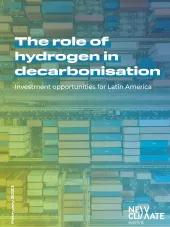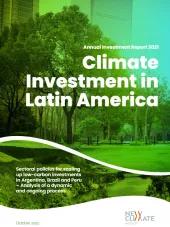Achieving the Paris Agreement necessitates transformative changes across all sectors globally, including significant reductions in AFOLU emissions and increased carbon sinks, particularly in Latin America where AFOLU emissions account for 46% of total emissions, mostly driven by commodity agriculture and livestock. This report analyses the status of the sector’s alignment with the objectives of the Paris Agreement and identifies investment opportunities in LAC that have the potential for transformational change to net zero emissions.
The key messages include:
In a Paris Agreement-compatible world, agri-food systems are not only expected to meet the consumption needs of people and animals, but also to contribute to multiple climate and development objectives simultaneously.
Policy support is needed to accelerate the uptake of both investment opportunities analysed in this report, for example by providing financial incentives for start-ups, promoting research and innovation in production chains, and encouraging users and consumers to further increase demand for both products. Private investments should be (re)directed to agribusinesses that are considering or have already made the shift to business models that minimise the climate impacts of their operations will allow both development and climate objective to be met in the long run.
Redirecting at least part of Latin America’s foreign capital inflows from conventional activities to innovative solutions or products in the sector would be fully aligned with international guidance on making future investments compatible with the Paris Agreement.
There is significant investment flowing into the region but only a small share is flowing into innovative, more sustainable and climate-friendly alternatives. At the same time, there is already important public support, e.g., for research and development, that, if directed to the right purposes could play an important role in overcoming barriers in the region to further expand into new investment opportunities like the production of biochar and alternative proteins. These opportunities can not only bring economic benefits to the countries but are in line with reducing emissions and preventing climate change impacts.







